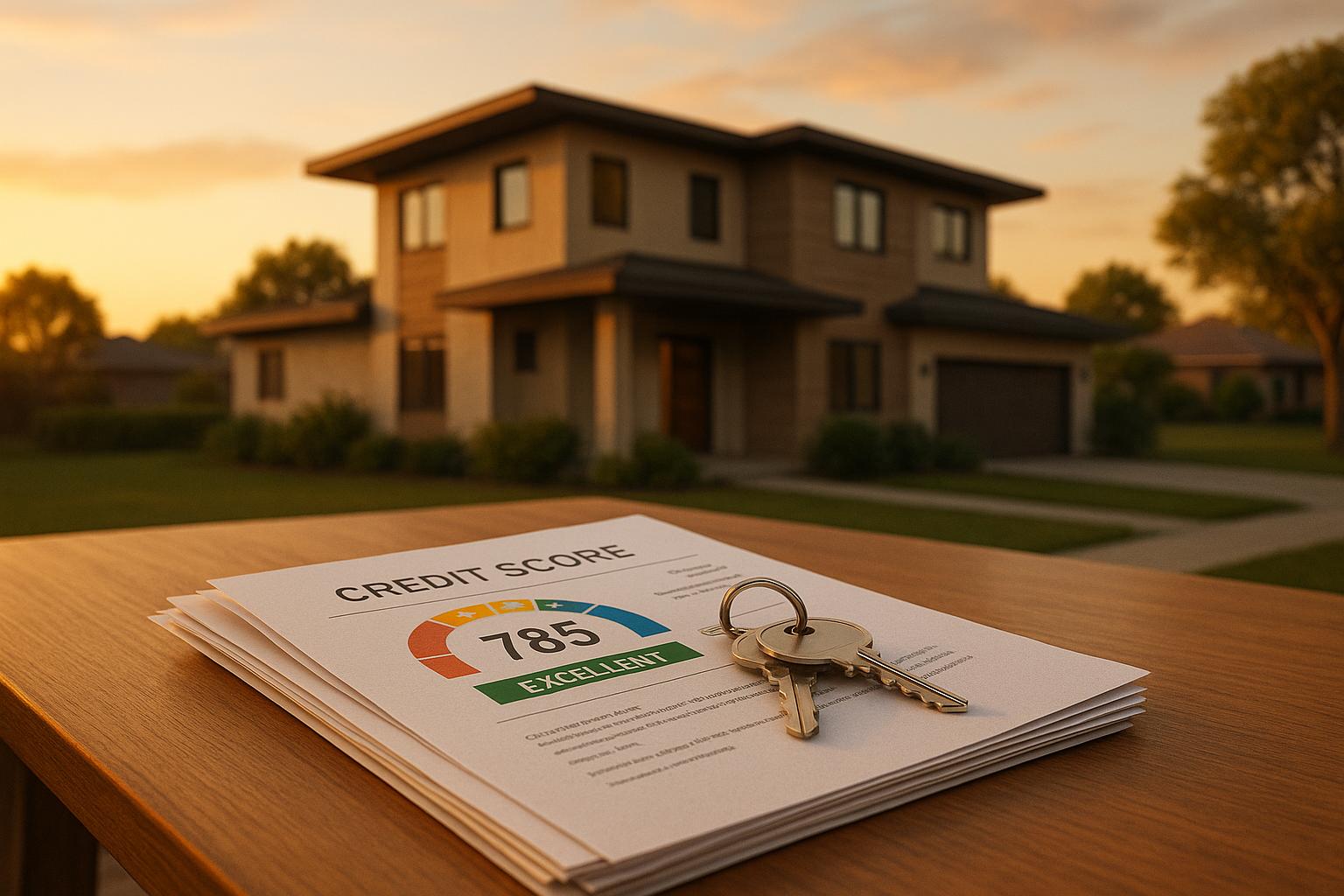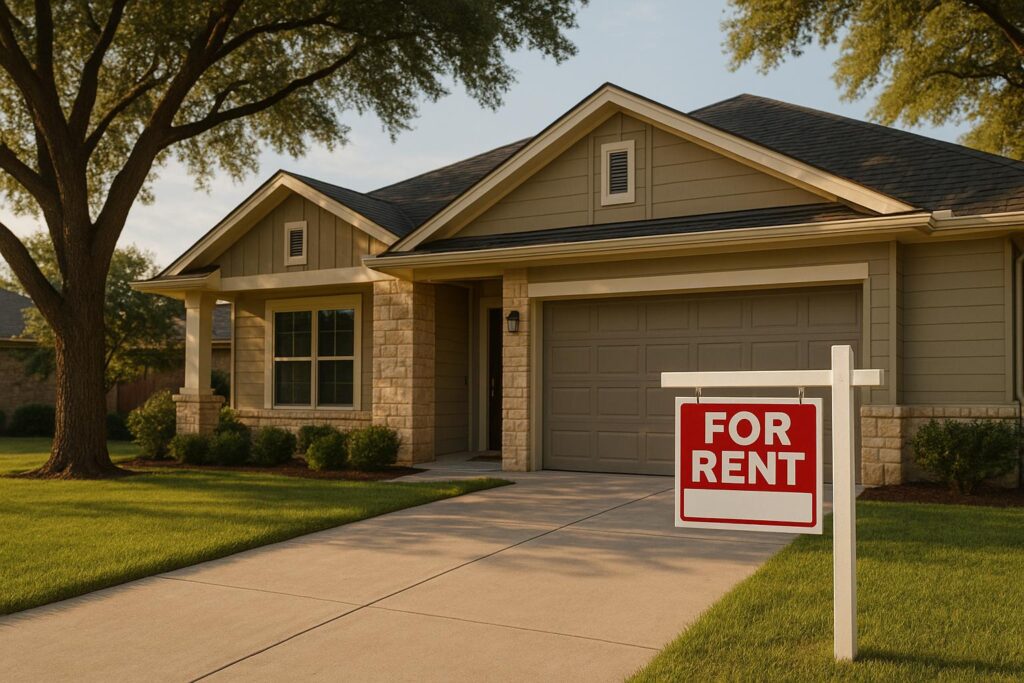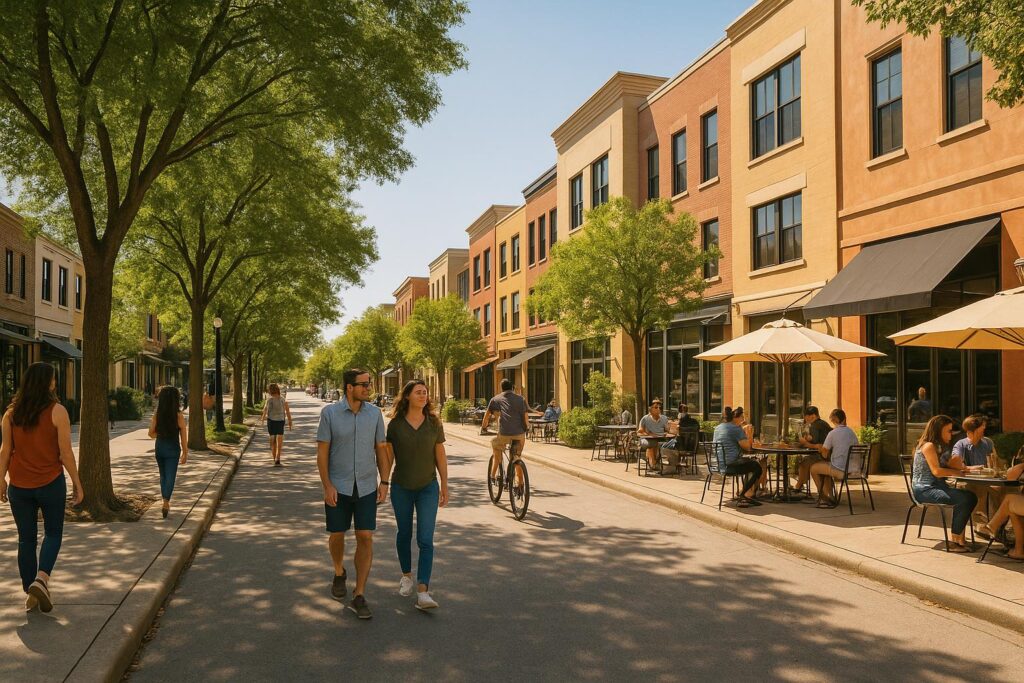Did you know your credit score can save – or cost – you thousands on an Austin mortgage? Here’s what you need to know:
- Key Credit Score Ranges by Loan Type:
- Conventional loans: 620–640 minimum.
- FHA loans: 580 minimum (500–579 possible with a 10% down payment).
- VA loans: 620 minimum.
- USDA loans: 640 minimum.
- Austin Housing Market Snapshot:
- Median home price: $494,667 (as of January 2025).
- Average credit score in Texas: 695.
- 74% of buyers used financing in 2024, but 21% of applications were denied due to poor credit.
- Why It Matters: A higher credit score means lower interest rates. For example, on a $402,873 loan:
- A 760+ score gets a 7.242% rate, saving $165/month compared to a 620–639 score.
- New Opportunities: Lenders now consider rental payment history and alternative data, helping more buyers qualify for loans.
Quick Takeaway: Your credit score directly impacts mortgage approval, interest rates, and monthly payments. Aim for a score above 720 for the best terms, and explore new credit evaluation methods to improve your chances.
How to get a mortgage in 2025 part 1 – Check your credit
Austin Mortgage Credit Score Requirements
In Austin’s competitive housing market – where the average price for a single-family home is $494,667 as of January 2025 – credit scores play a key role in determining mortgage terms.
Minimum Scores by Loan Type
Here’s a breakdown of the minimum credit score requirements for different loan types in Austin:
| Loan Type | Minimum Credit Score | Down Payment Required |
|---|---|---|
| Conventional | 620–640 | 3–20% |
| FHA | 580 | 3.5% |
| FHA (Lower Score) | 500–579 | 10% |
| VA | 620 | 0% |
| USDA | 640 | 0% |
While these are the general thresholds, many lenders in Austin set stricter standards. For instance, programs offered by the Texas State Affordable Housing Corporation (TSAHC) often reflect these elevated requirements.
Loan Approval Rates and Credit Scores
With recent changes in credit standards, securing loan approval has become more challenging. Conventional loans now make up 64% of Austin mortgages, reflecting their popularity among buyers with higher credit scores. On the other hand, FHA loans remain a go-to choice for those with lower credit scores, thanks to their more lenient qualification criteria. However, evolving lender requirements continue to influence mortgage accessibility across the board.
Local Lender Requirements
Local lenders in Austin have adjusted their credit score requirements to keep up with market trends:
- Homefinity requires a minimum score of 620 for conventional loans and accepts scores as low as 600 for FHA and VA loans.
- Garden State Home Loans has a stricter policy, requiring a minimum credit score of 640 for conventional loans.
For self-employed borrowers, additional documentation is often necessary, but some lenders offer specialized products to cater to these needs. Given the tightening standards, buyers should focus on a few key strategies: choose homes within realistic financial limits, consider larger down payments, shop around for lenders, and explore options designed for alternative income documentation.
In Austin’s fast-paced market, maintaining a strong credit profile is crucial for securing favorable mortgage terms.
Credit Score Data for Austin Buyers
First-Time Buyer Credit Issues
First-time homebuyers in Austin face tough credit requirements, especially as the median home price climbs to $545,000 – a 2.3% increase. According to FHA data, first-time buyers have a delinquency rate of 5.16%, which is noticeably higher than the 3.96% rate for repeat buyers. Credit scores play a significant role here: borrowers with scores below 620 face an 8.41% delinquency rate, while those with scores above 720 enjoy a much lower rate of just 1.32%. Most first-time buyer programs require a minimum credit score of 620, making it a key threshold for potential homeowners. Additionally, location within Austin can influence how borrowers navigate these challenges.
"First-time home buyers are struggling to break into the housing market as high prices and mortgage rates push homeownership further out of reach." – Zhou Yu, housing expert and associate professor of family and consumer studies at the University of Utah
Credit Access by Neighborhood
Austin’s housing market shows significant variation in home prices across neighborhoods, which directly impacts borrowing and lending trends:
| Neighborhood | Median Home Price |
|---|---|
| Tarrytown | $1.9M |
| Windsor Park | $520K |
| East Austin | $645K |
| Mueller | $765K |
In addition, about 36% of homes in areas like South Austin, Zilker, and East Riverside sell above the asking price, further complicating affordability. These neighborhood-specific trends also reflect broader patterns tied to buyer demographics, including age.
Age Groups and Credit Scores
The typical first-time buyer in Austin is now 38 years old, earning a household income of approximately $97,000. Despite this, many younger buyers feel the weight of financial pressure: 63% of Gen Z and 61% of Millennials report feeling overwhelmed by the challenges of homeownership.
The affordability gap is a persistent issue in the Austin metro area. While the median family income in 2024 reached $126,000, this income level supports a maximum affordable home price of $360,000 to $410,000 – well below the median sales price of $445,000.
"Home prices continue to outpace family incomes (in the Austin region). The median family income for the Austin metro in 2024 was $126,000, which, based on mortgage rates, roughly translated into a maximum affordable home price of between $360,000 and $410,000. Meanwhile, the median sales price measured well above those figures – $445,000." – Clare Knapp, Housing Economist, Austin Board of Realtors
This growing affordability gap has sparked interest in smaller, more cost-effective housing options for buyers.
sbb-itb-4c99469
Credit Scores and Mortgage Costs
Rate Variations by Credit Score
When it comes to mortgage interest rates in Austin, credit scores play a major role. As of January 2025, the connection between FICO score ranges and APRs is clear, with substantial cost differences for borrowers. For instance, homebuyers with excellent credit (760–850) can lock in rates as low as 7.242%, while those with lower scores (620–639) face higher rates, at approximately 7.838%.
| FICO Score | Mortgage APR | Monthly Payment |
|---|---|---|
| 760–850 | 7.242% | $2,746 |
| 700–759 | 7.449% | $2,803 |
| 680–699 | 7.555% | $2,832 |
| 620–639 | 7.838% | $2,911 |
Credit Score Effects on Payments
The difference in monthly mortgage payments based on credit scores is striking for Austin homebuyers. For example, on a $402,873 loan, a borrower with a top-tier credit score (760–850) saves about $165 per month compared to someone in the 620–639 range. To put this into perspective, a 100-point drop – from 780 to 680 – on a $300,000 home purchase with 20% down results in a $62 higher monthly payment, adding up to an extra $25,300 over the life of a 30-year mortgage. These numbers emphasize how credit scores directly influence not only monthly costs but also long-term financial commitments, including refinancing opportunities.
Refinancing and Credit Scores
Refinancing comes with its own set of costs, typically ranging from 2% to 6% of the loan amount, including fees of around 0.5% to 1.5%. Borrowers with higher credit scores generally secure better terms and lower expenses.
"If you’ve purchased a home in the past couple of years, you may want to take a look at where rates are today. That door to refinancing may well have opened up for you", says Greg McBride, chief financial analyst at Bankrate.
It’s worth noting that refinancing triggers a hard inquiry, which can temporarily lower your credit score. However, successful refinancing often improves creditworthiness over time. This highlights the value of maintaining a strong credit profile in navigating Austin’s evolving mortgage landscape.
New Credit Assessment Methods
Rent History in Credit Scores
Lenders are increasingly factoring in rental payment history when calculating credit scores, offering a boost to borrowers with lower ratings. As of 2024, only 3.5% of the 77 million renters in the U.S. had reported their rental payments. By including this data, lenders are creating more opportunities for individuals to qualify for mortgages.
The Federal Housing Administration (FHA) has been at the forefront of this shift, requiring lenders to incorporate positive rental payment histories into their evaluations. Since September 2024, the FHA has processed around 6,060 applications using rental payment records. This change has been especially beneficial for borrowers with lower FICO scores and incomes, opening the door to homeownership for many.
New Credit Evaluation Tools
Freddie Mac introduced its Loan Product Advisor system in 2022, which evaluates cash flow data alongside traditional credit metrics. Meanwhile, Austin-based FirstClose has developed tools that provide instant insights into property values, home equity, loan options, and credit decisions. These advancements are reshaping how creditworthiness is assessed, offering quicker and more comprehensive evaluations.
Austin Credit Assessment Updates
In Austin, where the median property price reached $545,000 in the first quarter of 2025, lenders are adopting more flexible credit assessment methods. With Texas’s average credit score standing at 695, these new approaches are helping more buyers qualify for loans without compromising responsible lending practices.
The impact of these updated methods is clear:
- 31% of borrowers with subprime scores improved to near-prime or better categories when rental history was included.
- Credit file accessibility rose by 12 percentage points within just five months of incorporating rental payments.
- Bilt customers with FICO scores below 540 saw the most dramatic improvements through rent reporting.
The loan management software market, valued at $11 billion in 2022, is expected to grow to $30 billion by 2030. This growth signals ongoing advancements in credit assessment technologies, paving the way for even more refined methods to assist Austin homebuyers in the future.
Conclusion
Credit scores play a major role in determining mortgage costs in Austin’s 2025 housing market. With the average credit score in Texas sitting at 695, buyers in the area encounter different opportunities depending on their financial standing. These differences are driving changes in how credit is assessed, shaping the future of Austin’s real estate landscape.
Recent developments in credit evaluation are opening homeownership to a broader range of buyers. By incorporating alternative data sources, lenders can now assess creditworthiness more flexibly while still adhering to responsible lending practices.
Options like bank statement loans have emerged as a lifeline for individuals with non-traditional income, giving them a chance to enter the housing market.
As highlighted earlier, advancements in mortgage technology are creating more inclusive and precise credit evaluation tools. When paired with time-tested credit-building strategies, these innovations are reshaping the way buyers access homeownership in Austin’s competitive market.
FAQs
How does my rental payment history affect my chances of getting a mortgage in Austin?
Your rental payment history can have a big impact on whether you qualify for a mortgage in Austin. Paying your rent on time every month sends a clear message to lenders: you’re dependable when it comes to managing financial commitments. In fact, some lenders may factor in your rental history when assessing your creditworthiness, which could boost your chances of getting approved.
However, late or missed rent payments can work against you. They might hurt your credit score and make it harder to qualify for a mortgage. Keeping a consistent track record of on-time rent payments is an excellent way to show lenders you’re financially responsible and ready to take on a home loan.
How can first-time homebuyers in Austin improve their credit scores to boost their chances of getting a mortgage?
First-time homebuyers in Austin have a few key steps they can take to boost their credit scores and improve their chances of getting approved for a mortgage. One of the most important things you can do is pay your bills on time – your payment history plays a big role in determining your credit score. It’s also a good idea to regularly review your credit report for errors. If you spot any inaccuracies, dispute them quickly to ensure your credit profile is accurate.
Another tip? Lower your credit card balances. Try to keep your credit utilization below 30% of your total credit limit. This shows lenders that you’re managing your credit responsibly. At the same time, avoid opening new credit accounts or making big purchases on credit while preparing to apply for a mortgage – these actions can cause a temporary dip in your score.
Getting pre-approved for a mortgage is another smart move. It gives you a clear picture of your budget and can help identify areas to strengthen your credit profile before you officially apply for a loan. By taking these steps, you’ll be in a stronger position to navigate Austin’s competitive housing market.
How do Austin’s neighborhood trends impact mortgage approvals and credit score requirements?
Neighborhood trends in Austin significantly influence mortgage approvals and the credit score benchmarks set for homebuyers. For instance, with the median home price hovering around $450,000, buyers are seeing more chances to enter the market, sparking greater competition. In response, lenders often tweak their approval standards to align with these favorable conditions.
Credit score requirements also shift depending on the neighborhood. Many lenders in Austin look for scores between 620 and 640 for conventional loans, while FHA loans might accept scores as low as 580, depending on the area’s economic landscape. These trends showcase how local neighborhood dynamics shape borrowing options and lending practices in Austin’s real estate market.





